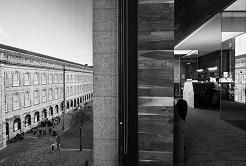"Scars have the strange power to remind us that our past is real."
- Cormac McCarthy, All the Pretty Horses
Trinity Week 2016
'Trinity Remembers' Competition
Aim of Competition: The aim of the competition is to create a posthumous memorial to a person associated with Trinity College Dublin’s past who has not already been suitably memorialised. A series of taught Masters studentships in the Faculty of Arts, Humanities and Social Sciences or an appropriate memorial will be named in honour of the winner.
Voting Closes: 8th April 2016
Announcement of Winner: 12th April 2016
Click here to cast your vote
The Candidates:
Professor Eleanor Knott (1886-1975)
Period and Area of activity at TCD: lecturer of Celtic Languages from 1928; professor of Early Irish from 1939-1955.
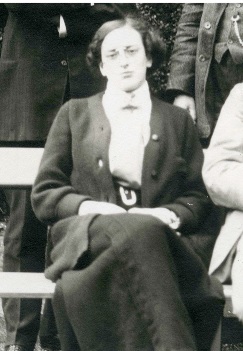 Professor Eleanor Knott (1886-1975), a scholar and lexicographer, was a prolific contributor to the field of Celtic Studies in the twentieth century. She had a very successful career producing academic work in the field of both Early and Modern Irish. As a scholar, Eleanor was renowned for her exacting and ‘scientific’ methods employed in her editorial approaches, preferring ‘quality over quantity’, as well as for her modest translations. Eleanor studied Old Irish at the School of Irish Learning, under the mentorship of Prof. Osborn Bergin, in Dublin and became well-versed in the language and literature of the Early and Modern Irish periods, with her published work touching upon all those areas. Eleanor’s speciality lay mainly in the language and poetry of the Early Modern Irish period, of which she became the leading authority during her lifetime.
Professor Eleanor Knott (1886-1975), a scholar and lexicographer, was a prolific contributor to the field of Celtic Studies in the twentieth century. She had a very successful career producing academic work in the field of both Early and Modern Irish. As a scholar, Eleanor was renowned for her exacting and ‘scientific’ methods employed in her editorial approaches, preferring ‘quality over quantity’, as well as for her modest translations. Eleanor studied Old Irish at the School of Irish Learning, under the mentorship of Prof. Osborn Bergin, in Dublin and became well-versed in the language and literature of the Early and Modern Irish periods, with her published work touching upon all those areas. Eleanor’s speciality lay mainly in the language and poetry of the Early Modern Irish period, of which she became the leading authority during her lifetime.
Gerald Anthony Keogh
Period and Area of activity at TCD: Gerald was shot in front of Trinity College on Tuesday 25 April 1916 during the Easter Rising.
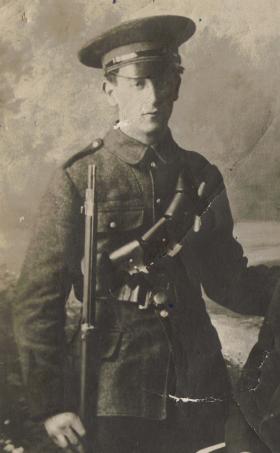 Gerald Anthony Keogh was perhaps not a typical twenty-two year old. He was the youngest of nine children, the family home located at 109 Ranelagh, Dublin. A former student of Patrick Pearse’s at St Enda’s, Gerald was a prominent member of Fianna Éireann and the Hibernian Rifles. He acted as Section Commander of Óglaigh na hÉireann from 1 April 1916 to 25 April 1916, and on Easter Monday 1916 was sent by Pearse to run an errand. Some accounts claim that Pearse had sent him to Larkfield Mill Kimmage to deliver dispatches, while others claim he was returning from delivering a message to Countess Markievicz in St Stephen’s Green. Whatever his errand, when cycling back towards the General Post Office at 4am on Tuesday 25 April 1916 with two comrades, Gerald’s fate and that of Trinity College became irrevocably intertwined.
Gerald Anthony Keogh was perhaps not a typical twenty-two year old. He was the youngest of nine children, the family home located at 109 Ranelagh, Dublin. A former student of Patrick Pearse’s at St Enda’s, Gerald was a prominent member of Fianna Éireann and the Hibernian Rifles. He acted as Section Commander of Óglaigh na hÉireann from 1 April 1916 to 25 April 1916, and on Easter Monday 1916 was sent by Pearse to run an errand. Some accounts claim that Pearse had sent him to Larkfield Mill Kimmage to deliver dispatches, while others claim he was returning from delivering a message to Countess Markievicz in St Stephen’s Green. Whatever his errand, when cycling back towards the General Post Office at 4am on Tuesday 25 April 1916 with two comrades, Gerald’s fate and that of Trinity College became irrevocably intertwined.
James David Bourchier
Period and Area of activity at TCD: 1870-1871 Bourchier was born in Limerick and studied at Trinity College Dublin.
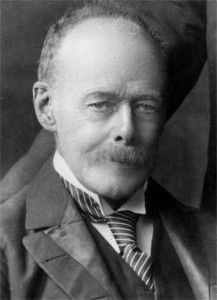 Bourchier, from Anglo-Irish stock in Bruff, Co Limerick, was the London Times correspondent in the Balkans and became the staunchest and most faithful friend Bulgaria ever had, in the words of his biographer, Lady Elinor Grogan. Bourchier was no ordinary journalist, but a champion of Bulgaria’s cause even after it sided with Germany in the first World War. Bourchier went to Trinity College Dublin, where he won a gold medal in classics, and this led him to King’s College, Cambridge, where he again excelled in Latin and Greek, winning seventh place in his class.
Bourchier, from Anglo-Irish stock in Bruff, Co Limerick, was the London Times correspondent in the Balkans and became the staunchest and most faithful friend Bulgaria ever had, in the words of his biographer, Lady Elinor Grogan. Bourchier was no ordinary journalist, but a champion of Bulgaria’s cause even after it sided with Germany in the first World War. Bourchier went to Trinity College Dublin, where he won a gold medal in classics, and this led him to King’s College, Cambridge, where he again excelled in Latin and Greek, winning seventh place in his class.
Laurence (Lar) Cassidy
Period and Area of activity at TCD: Lit/Hist/Phil Trinity student 1968-1971
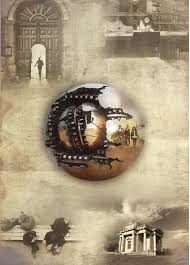 Laurence (Lar) Cassidy (died 1997), is a former Lit/Hist/Phil Trinity student (1968-1971) who as the Irish Arts Council's Literature Officer championed not only literature and publishing but the arts and community arts in general, both here and on the international scene. As Literature Officer (1980-1997) he was also assistant registrar of Aosdana, and director of "Ireland and its Diaspora" at the 1996 Frankfurt Book Fair. He also developed the Arts Council's Community Arts Portfolio. He served as director of the International Writer's Festivals of 1988, 1991, and 1993. Lar played a key role in establishment of the Irish Writer's Centre and Literature Exchange. He initiated the strategic assessment leading to the 1995 report "The Future of Irish Publishing".
Laurence (Lar) Cassidy (died 1997), is a former Lit/Hist/Phil Trinity student (1968-1971) who as the Irish Arts Council's Literature Officer championed not only literature and publishing but the arts and community arts in general, both here and on the international scene. As Literature Officer (1980-1997) he was also assistant registrar of Aosdana, and director of "Ireland and its Diaspora" at the 1996 Frankfurt Book Fair. He also developed the Arts Council's Community Arts Portfolio. He served as director of the International Writer's Festivals of 1988, 1991, and 1993. Lar played a key role in establishment of the Irish Writer's Centre and Literature Exchange. He initiated the strategic assessment leading to the 1995 report "The Future of Irish Publishing".
Nathaniel Hooke (1664-1738)
Period and Area of activity at TCD: 1679-1680: Student of Arts and Divinity & 1690: Military officer billeted in College
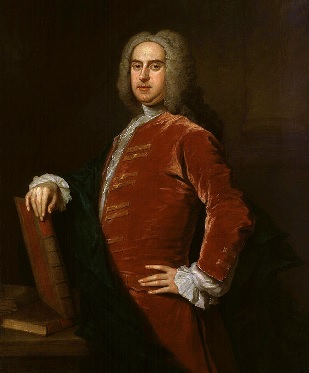 Trinity has its own 007. The name was not Bond, but Hooke, Nathaniel Hooke.
Trinity has its own 007. The name was not Bond, but Hooke, Nathaniel Hooke.
A career as a spy was an unlikely outcome for a student of theology and would-be pastor. Hooke arrived at Trinity after grammar school at Kilkenny College, then the finest (and most expensive) school in Ireland for young gentlemen. Jonathan Swift and William Congreve were contemporaries at Kilkenny, and of course also attended Trinity. Nathaniel Hooke was the son of a good Dublin family, which included minsters and merchants. His grandfather Thomas Hooke was Mayor of Dublin in 1654.
Theobald Wolfe Tone (1763-1798)
Period and Area of activity at TCD: Student, Member and Auditor of Hist, Graduated February 1786
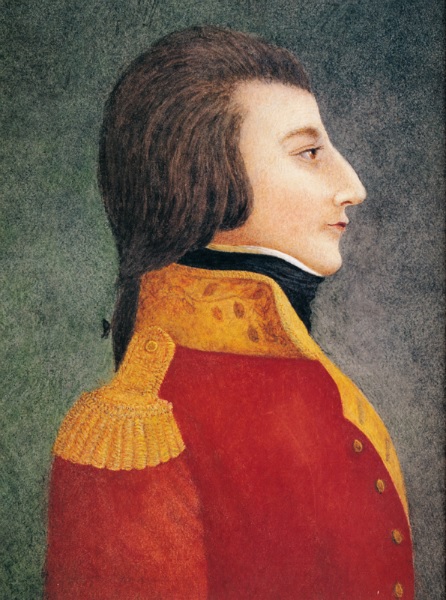 Theobald Wolfe Tone (1763-1798), a graduate of Trinity college (Batchelor of Arts, Feb 1786), influential member and orator of the Hist during one of the most pivotal decades of Irish history, is of course widely recognised as one of Ireland's leading and most influential nationalists. Yet, despite his substantial achievements in life, and his towering posthumous legacy, he has remained unemorialised by his own college. In his autobiography, written while in exile in France, he remembered Trinity warmly: 'I look back on my College days with regret, and preserve and ever shall a most sincere affection for the University of Dublin.'
Theobald Wolfe Tone (1763-1798), a graduate of Trinity college (Batchelor of Arts, Feb 1786), influential member and orator of the Hist during one of the most pivotal decades of Irish history, is of course widely recognised as one of Ireland's leading and most influential nationalists. Yet, despite his substantial achievements in life, and his towering posthumous legacy, he has remained unemorialised by his own college. In his autobiography, written while in exile in France, he remembered Trinity warmly: 'I look back on my College days with regret, and preserve and ever shall a most sincere affection for the University of Dublin.'
Isabel Marion Weir Johnston
Period and Area of activity at TCD: 1904 in English and French
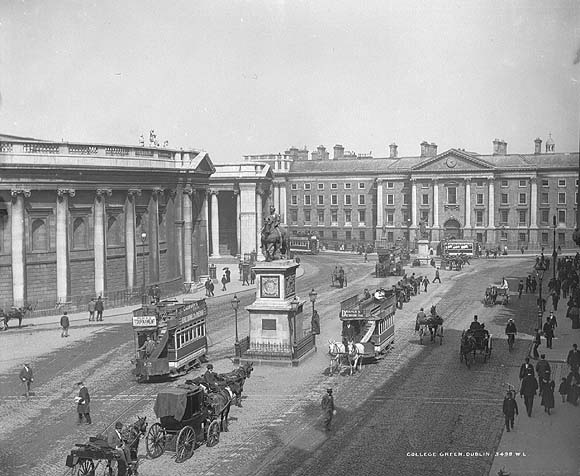 Isabel Marion Weir Johnston was the first woman student to register in Trinity College Dublin in January 1904. She did this at a time of great resistance towards women being admitted into the College, with the Board of College turning down a petition by 10,000 signatories in 1892 calling for the abolition of the ban against admittance of women, warning that “If a female had once passed the gate….it would be practically impossible to watch what buildings or what chambers she might enter, or how long she might remain there.” George Salmon, the former Provost memorialised in a statue today located beside the Campanile, is rumoured to have stated “women will enter Trinity College over my dead body”. Interestingly he died the day she arrived in Dublin to join the College in January 1904, with her examination then delayed until after his funeral.
Isabel Marion Weir Johnston was the first woman student to register in Trinity College Dublin in January 1904. She did this at a time of great resistance towards women being admitted into the College, with the Board of College turning down a petition by 10,000 signatories in 1892 calling for the abolition of the ban against admittance of women, warning that “If a female had once passed the gate….it would be practically impossible to watch what buildings or what chambers she might enter, or how long she might remain there.” George Salmon, the former Provost memorialised in a statue today located beside the Campanile, is rumoured to have stated “women will enter Trinity College over my dead body”. Interestingly he died the day she arrived in Dublin to join the College in January 1904, with her examination then delayed until after his funeral.
